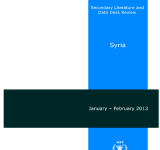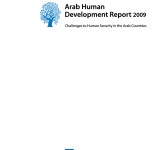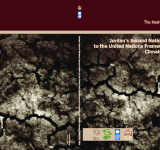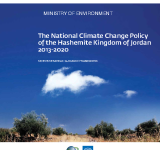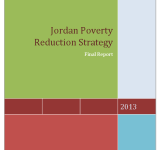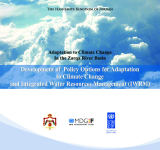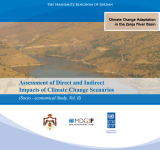The 21st century is witnessing a profound shift in global dynamics;; driven by the fast-rising new powers of the developing world. China has overtaken Japan as the world's second biggest economy;; lifting hundreds of millions of people out of poverty in the process. India is reshaping its future with new entrepreneurial creativity and social policy innovation. Brazil is raising its living standards by expanding international relationships and antipoverty programmes that are emulated worldwide. But the “Rise of the South” is a much larger phenomenon. Indonesia;; Mexico;; South Africa;; Thailand;; Turkey and other developing countries are becoming leading actors on the world stage. The 2013 Human Development Report identifies more than 40 developing countries that have done better than expected in human development in recent decades;; with their progress accelerating markedly over the past 10 years.
climate
The purpose of this desk review is to uncover the food security and nutrition information available on the three target countries;; to advise WFP on the absence of any relevant information that would prevent a comprehensive evaluation of refugee food security status;; and to provide guidance on areas for primary data collection during the March 2013 Joint Assessment Mission (JAM).
The fifth volume in the series of Arab Human Development Reports sponsored by the United Nations Development Programme and independently authored by intellectuals and scholars from Arab countries. The report argues that human security is a prerequisite for human development;; and that the widespread absence of human security in Arab countries undermines people's options.
This report is the result of the long;; tedious and creative work of many Jordanian experts who together have reflected the most comprehensive outlook about climate change in the Jordanian context and outlined Jordan’s efforts in addressing the phenomena and the impacts of climate change. Whether in greenhouse gas inventory;; adaptation and mitigation options the readers of this report will find answers about Jordan’s minor contribution in emissions and major vulnerability to climate change impacts
Jordan faces potential serious impacts on its natural ecosystems;; on its river basins and watersheds;; on biodiversity—then cascading to impacts on food productivity;; water resources;; human health;; public infrastructure;; and human settlements. Climate change will have serious implications on the country’s efforts to eradicate poverty and realize sustainable development for current and future generations— ultimately making climate change an issue of intergenerational equity. Climate change scenarios indicate that Jordan and the Middle East could suffer from reduced agricultural productivity and water availability among other negative impacts. At the same time;; a substantial potential for cost-effective reduction of GHG emissions exists in Jordan. The Policy will provide an overarching (umbrella/high level) guidance for the Government of Jordan to implement the major climate change objectives of national priority related to adaptation and mitigation of GHG emissions
The Government of Jordan adopted its first Poverty Alleviation Strategy in 2002 recognizing poverty as a key development problem requiring a comprehensive policy for improving the lives of the poor and socially excluded;; increasing their human capabilities;; providing them with economic opportunities and fully integrating them in the society. Considerable progress in poverty reduction has been achieved. The Government has put in place a series of social programs aimed at increasing employment opportunities;; curbing unemployment;; combating poverty and offering in-kind and cash assistance for the poor and marginalized groups within Jordanian society
The report is directed at drawing a picture of the prevailing legal and institutional frameworks of the water sector in Jordan in relation to climate change adaptation in the Zarqa River Basin (ZRB). To achieve this purpose;; three tasks were conducted;; (1) literature of pertinent documents on legislation;; administration;; regulations;; water policies and water laws were reviewed;; (2) address the gaps in the water policies in Jordan as related to climate change vulnerability;; and to raise awareness of the importance of developing climate change mitigation measures;; and (3) propose policy options for adaptation to climate change through implementation of IWRM as a tool. The objective of the revision is the assessing the appropriateness and effectiveness of the existing institutional framework regarding the climate change adaptation measures in ZRB. Combating water scarcity remains a strategic challenge that Jordan faces for augmenting its water resources.
The study aims at optimizing the water allocation in the Zarqa River Basin (ZRB) through maximizing the net value added by considering the climate change scenarios developed by the team of the study. The current water allocation suffers from unmet demands. In the future;; more wastewater will be produced and more treated wastewater is expected to be used due to the increasing population and the increased connection rate and rehabilitation and expansion of the existing treatment plants;; allocating more treated wastewater for the irrigation sector would save the fresh water sources for the municipal sector. Currently the irrigation sector suffers high amounts of losses. An improvement in efficiency would contribute in saving more fresh water too. Volume One is a Water Resources Study and Volume Two is a Socio - economical Study.

